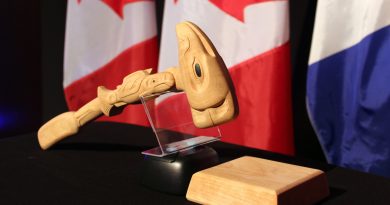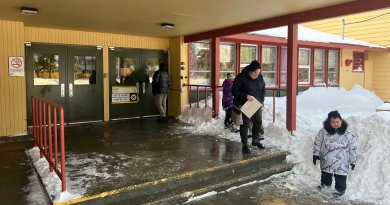Treaty interpretations spark caribou management disagreements at N.W.T. court
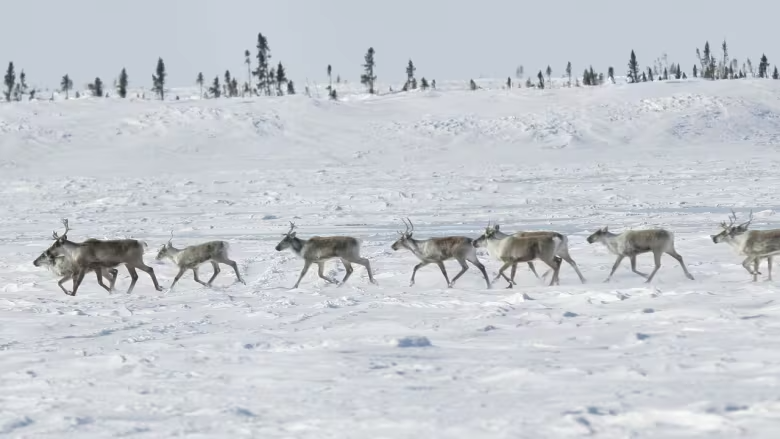
Territory appealing court decision that could change caribou hunting management in Colville Lake
At the Court of Appeal of the N.W.T. on Tuesday, lawyers for the N.W.T. government and Colville Lake disagreed on treaty interpretations in a pivotal moment for caribou management rights.
It’s the latest in a longstanding process between the territory and Colville Lake over caribou management plans.
Joseph Kochon, the chief negotiator for Behdzi Ahda First Nation, said the current court proceedings consist of fleshing out different interpretations of treaty words, especially one section in particular. Lawyers argued for different interpretations of terms like “participants” and “local.”
The view of Colville Lake and the Sahtu Renewable Resources Board is that the treaty section means all treaty participants, regardless of what community they’re from, have to follow Colville Lake hunting management ways when they’re in the community’s hunting zone.
In 2020, the Sahtu board decided Colville Lake has primary responsibility for barren-ground caribou stewardship in a specific location called Sahtu Barren-ground Caribou Area 01, which surrounds the community.
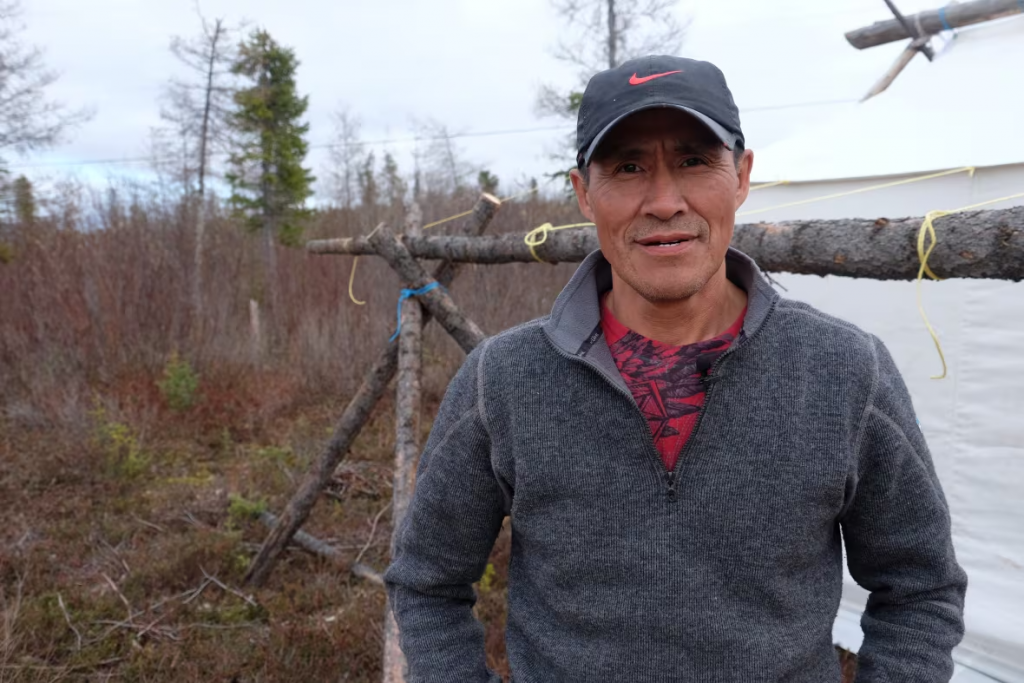
The territorial government has a different interpretation of the treaty. It says Colville Lake should only be allowed to manage Colville Lake treaty members in the area and not hunters from other communities who are harvesting caribou there.
The territorial government also said the minister of Environment and Climate Change is responsible for wildlife protection as a whole, which prevents the territory from handing over caribou management power to Colville Lake. Rather, it is a shared responsibility.
Colville Lake has been fighting for years against the co-management plan, arguing it confines members to colonial approaches.
In 2019, Colville Lake submitted its own caribou conservation plan. The community plan would replace the territory’s approach to conservation using a quota system, or total allowable harvest. That plan was approved in 2020 by the Sahtu Renewable Resources Board. However, it was later rejected by then-Environment minister Shane Thompson. Since then, the community and territorial government have been in and out of court to settle the issue.
The Bluenose-West caribou herd has declined over the past couple decades from an estimated 112,000 animals in 1992 to 18,444 in 2021.
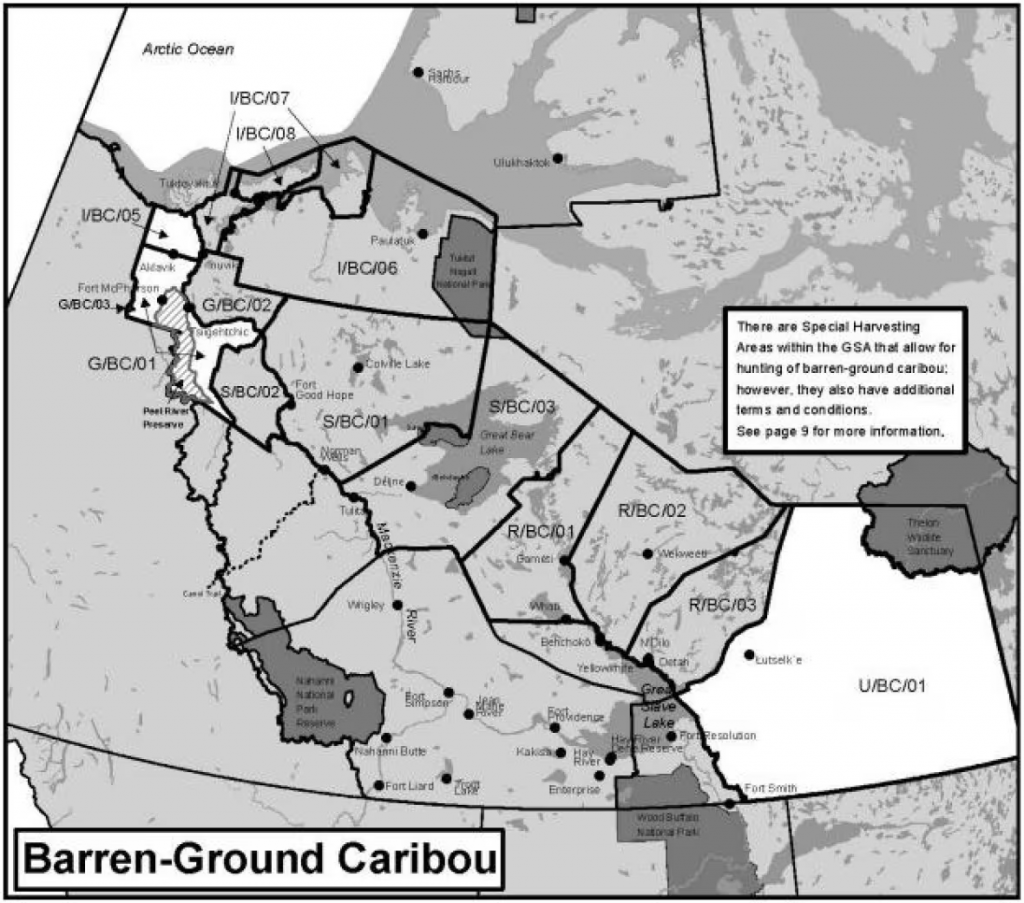
Kochon said Colville Lake’s proposed plan aims to prevent overharvesting.
“We already had a plan before the land claims, before the [territorial government] ever existed, and we continue exercising that today — we put it into formal writings,” he said.
Kochon said there are certain sections of the harvesting area that have no oversight. The community is suggesting hunters should be accompanied to ensure safety and that they are following traditional hunting rules to only take what is needed.
He added boundary lines with other harvesting areas are sometimes blurred.
“What we see happening is that people are going out of the boundary line and shooting as much as they can in a short time period and sometimes taking more than what they need and there’s nobody really overseeing that,” said Kochon.
The appeal court has reserved its decision in the case.
Jay Macdonald, current Environment and Climate Change minister, declined to comment as legal proceedings are ongoing.
Related stories from around the North:
Canada: Arctic Guardians– Monitoring wildlife, preserving cultural values and traditions, Eye on the Arctic
Finland: Possible record year for arctic fox in Nordics with 762 cubs counted in 2022, Eye on the Arctic
Greenland: Researchers identify polar bear population that hunts off glacier ice, Eye on the Arctic
Sweden: Wildlife project to save endangered species in Sweden, Radio Sweden
United States: U.S. judge suspends Alaska Cook Inlet lease, pending additional environmental review, The Associated Press

